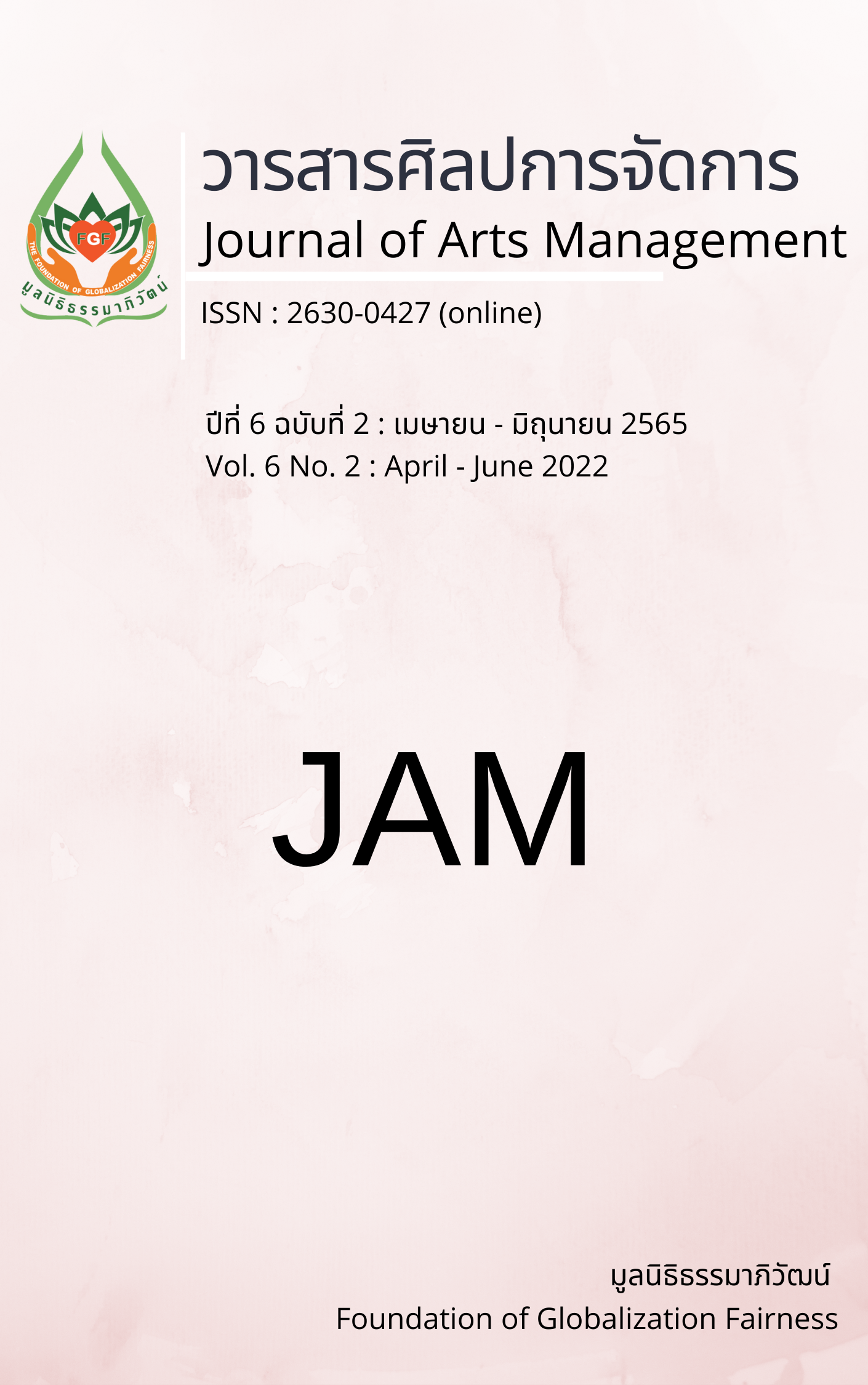Expectation and Reality of Economic Impact in Community from Hosting International Sport Events
Main Article Content
Abstract
This article aimed to 1) study expectations and realities of economic impact; 2) compare the difference between expectations and realities as classified by gender, age, and occupation of residents in the community; and 3) develop guidelines on economic impact management in the community from hosting international sporting events. This research was a mixed method research employing 1) the questionnaire with a reliability value of 0.897 for quantitative research. The sample consisted of 480 residents in 8 randomly selected districts in Buriram province and used stratified random sampling and 2) semi-structured interviews for qualitative research. Data were analyzed by using descriptive and inferential statistics for the questionnaire and content analysis for the interview.
The research results were found as follows: 1) the expectation of economic impact was at the high level having mean at 3.85 and the reality of economic impact was at the high level having mean at 3.50; 2) The residents with different gender and occupation did not have statistically significant difference of opinion in expectation and reality of economic impacts, however the residents with different ages had statistically significant difference of opinion in expectation and reality of economic impacts at the .05 level; and 3) guideline on economic impact management found that encouragement of hosting international sport events quantitatively and continuously leads to provide employment and increase income that can create the positive economic impact for the resident in community.
Article Details

This work is licensed under a Creative Commons Attribution-NonCommercial-NoDerivatives 4.0 International License.
Views and opinions appearing in articles in the Journal of Arts of Management It is the responsibility of the author of the article. and does not constitute the view and responsibility of the editorial team I agree that the article is copyright of the Arts and Management Journal.
References
Abdel Azim Ahmed, T.S. (2017). A triple bottom line analysis of the impacts of the Hail International Rally in Saudi Arabia. Managing Sport and Leisure, 22(4), 276–309. https://doi.org/10.1080/23750472.2018.1465841
Broadman, A. E., Greenberg, D. H., Vining, A. R., & Weimer, D. (2001). Cost-benefit analysis: concepts and practice. Prentice Hall.
Buhalis, D. (2000). Marketing the competitive destination of the future. Tourism Management, 21(1), 97-116. https://doi.org/10.1016/S0261-5177(99)00095-3
Bull, C., & Lovell, J. (2007). The impact of hosting major sporting events on local residents: An analysis of the views and perceptions of canterbury residents in relation to the Tour de France 2007. Journal of Sport & Tourism, 12(3-4), 229-248. https://doi.org/10.1080/14775080701736973
Fredline, E. (2005). Host and guest relations and sport tourism. Sport in Society, 8(2), 263-279.
Hritz, N., & Ross, C. (2010). The perceived impacts of sport tourism: An urban host community perspective. Journal of Sport Management, 24 (2), 119-138. https://doi.org/10.1123/jsm.24.2.119
Jurowski, C., & Gursoy, D. (2004). Distance effects on residents' attitudes toward tourism. Annals of Tourism Research, 31(2), 296-312. https://doi.org/10.1016/j.annals.2003.12.005
Kanlaya, V. (2005). Statistics for research. Chulalongkorn University.
Lee, S., & Krohn, B. D. (2013). A study of psychological support from local residents for hosting mega-sporting events: A case of the 2012 Indianapolis super bowl XLVI. Event Management, 17(4), 361-376.
Lovegrove, H., & Fairley, S. (2017). Using equity theory to understand non-host city residents’ perceptions of a mega-event. Journal of Sport & Tourism, 21, 1–14. https://doi.org/10.1080/14775085.2016.1254108
Perić, M. (2018). Estimating the perceived socio-economic impacts of hosting large-scale sport tourism events. Social Sciences, 7(10), 629-640. https://doi.org/10.3390/socsci7100176
Prayag, G., Hosany, S., Nunkoo, R., & Alders, T. (2013). London residents' support for the 2012 Olympic games: The mediating effect of overall attitude. Tourism Management, 36, 629-640. https://doi.org/10.1016/j.tourman.2012.08.003
Prayag, G., Hosany, S., & Odeh, K. (2013). The role of tourists' emotional experiences and satisfaction in understanding behavioral intentions. Journal of Destination Marketing & Management, 2(2), 118–127. https://doi.org/10.1016/j.jdmm.2013.05.001
Standeven, J., & De Knop, P. (1999). Sport tourism. Human Kinetics.
Suwimon, W. (2005). Research for need assessment. Chulalongkorn University.


